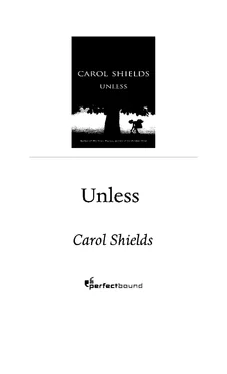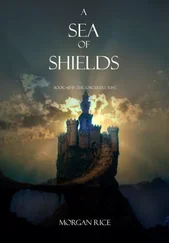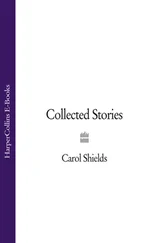Carol Shields - Unless
Здесь есть возможность читать онлайн «Carol Shields - Unless» — ознакомительный отрывок электронной книги совершенно бесплатно, а после прочтения отрывка купить полную версию. В некоторых случаях можно слушать аудио, скачать через торрент в формате fb2 и присутствует краткое содержание. Жанр: Современная проза, на английском языке. Описание произведения, (предисловие) а так же отзывы посетителей доступны на портале библиотеки ЛибКат.
- Название:Unless
- Автор:
- Жанр:
- Год:неизвестен
- ISBN:нет данных
- Рейтинг книги:4 / 5. Голосов: 1
-
Избранное:Добавить в избранное
- Отзывы:
-
Ваша оценка:
- 80
- 1
- 2
- 3
- 4
- 5
Unless: краткое содержание, описание и аннотация
Предлагаем к чтению аннотацию, описание, краткое содержание или предисловие (зависит от того, что написал сам автор книги «Unless»). Если вы не нашли необходимую информацию о книге — напишите в комментариях, мы постараемся отыскать её.
Unless — читать онлайн ознакомительный отрывок
Ниже представлен текст книги, разбитый по страницам. Система сохранения места последней прочитанной страницы, позволяет с удобством читать онлайн бесплатно книгу «Unless», без необходимости каждый раз заново искать на чём Вы остановились. Поставьте закладку, и сможете в любой момент перейти на страницу, на которой закончили чтение.
Интервал:
Закладка:
Lost. A part of my consciousness opened like the separation of a cloud onto scenes of abrupt absence. Sunlight fell with a thud on streets that Norah would never walk down, the stupid, dumb, dead sun. Her birthdays would go on without her, the first of May, ten years from now, or twenty. Somehow she had encountered a surfeit of what the world offered, and had taken an overdose she is not going to be able to survive.
Or else not a surfeit, but its opposite, as Danielle Westerman seems to understand. A trick of perception may have fooled Norah into believing that life is too full to be embraced and too beautiful to bear. But the truth is something very different, and I am trying to figure out what that truth might be. Sometimes I am close to knowing.
Other times I feel I’m just another anxious mother who quarrelled with her daughter, a daughter who was merely depressed, fed up at the end of a long winter and probably worried about her first love affair going stale. I’ve overreacted, that’s all. And projected my own fears and panics onto Norah. What evidence do I have? None. She will be fine in a few days, home again, feeling a little foolish and apologetic.
I go back and forth between complacency and worry. No one gets through this time of life unruffled. It’s impossible. On the other hand, I remember the look in her eyes as she sat at the kitchen table, and my thoughts become more and more reckless. It sometimes occurs to me that there is for Norah not too much but too little; a gaping absence, a near-starvation. There is a bounteous feast going on, with music and richness and arabesques of language, but she has not been invited. She is seeing it for the first time, but now she will never be able to shake it from view. A deterioration has occurred to the fabric of the world, the world that does not belong to her as she has been told. Again and again and again. She is prohibited from entering. From now on life will seem less and less like life.
No, I am not ready yet to believe this.
Insofar As
October 8, 2000
Dear Sirs:
I was feeling more than usually depressed last night over personal matters and I happened to be sitting in a big armchair skimming through the latest issue of your magazine, which my spouse thoughtfully picked up for me at the local Mags & Fags. (We don’t subscribe, because we already feel there is too much paper flowing into our house, and we do try to be good citizens and only take the occasional nick off the planet.)
I couldn’t help noticing that you have sold one of your very expensive advertising pages to what appears to be a faux institution of some kind. The density of the typography and its brown uncurling script are attempting to avoid the usual four-colour commercial blast, but without success. There’s actually a lot of hustle on this page. The product, in any case, is Great Minds of the Western Intellectual World: Galileo, Kant, Hegel, Bacon, Newton, Plato, Locke, and Descartes. Small but very authentic-looking engravings of these gentlemen’s heads form a tight (let us say impregnable ) band across the top of the page, and what is suggested is a continuum of learning, a ceaseless conveyor belt of noble thought, extracts of which are recorded, as you explain further down on the page, in eighty-four (84) half-hour lecture tapes, which one may listen to as he [assumed pronoun] walks or jogs or commutes or does the CHORES[my emphasis].
That’s a great number of half-hours given over to learning, you will agree, but at least a subscriber will be saved, according to the advertising copy, “years of intense reading and study” and, even worse, “complete withdrawal from active life.” You can awaken your mind
“without having to quit your job or become a hermit.” A hermit! The scholar will be guided in his study by the Faculty; that’s Darren (skipping last names), Alan, Dennis, Phillip, Jeremy, Robert, another Robert, Kathleen (Kathleen?), Louis, Mark, and Douglas. My question is: How did Kathleen make it to this race?
I might as well admit that I am troubled these days (and nights) by such questions. I have a nineteen-year-old daughter who is going through a sort of soak of depression — actually her condition has not yet been diagnosed — which a friend of mine suspects is brought about by such offerings as your Great Minds of the WIW, not just your particular October ad, of course, but a long accumulation of shaded brown print and noble brows, reproduced year after year, all of it pressing down insidiously and expressing a callous lack of curiosity about great women’s minds, a complete unawareness, in fact.
You will respond to my comments with a long list of rights women have won and you will insist that the playing field is level, but you must see that it is not. I can’t be the only one who sees this.
I realize I cannot influence your advertising policy. My only hope is that my daughter, her name is Norah, will not pick up a copy of this magazine, read this page, and understand, as I have for the first time, how casually and completely she is shut out of the universe. I have two other daughters too — Christine, Natalie — and I worry about them both. All the time.
Yours, Reta Winters
The Hermitage, Orangetown, Canada
Thereof
There is a problem all fiction writers must face if they want to create unique and substantial characters. Characters, at least those personages who are going to be important to the developing narrative, require context. They can’t simply be flung onto the page as though they had metamorphosed from warm mud. Darwin put an end to that. Freud too.
Parthenogenesis doesn’t work for human beings, not yet and probably never, unless being human becomes something other than what we know. Characters in books need to be supplied with a childhood of some sort, with parents at the very least, sometimes even grandparents.
These genealogical antecedents may be dead or lost, in which case they need not be introduced into the ongoing narrative but simply alluded to. Ancient Granddad Barney with his war medals. Grandma Foster and her fixation on bodily functions. The old genetic mutterings press directly or subtly on the contemporary character and how he/she responds to life’s vicissitudes. The distinctions may be shaded in with a rub of graphite: WASP or Jewish, old money or new; a novelist must recognize that the gene pool is part of the plot, and that even my spacey, romantic Alicia is a bundle of chromosomes, precisely engineered. Parents influence children, stiffening or weakening their resolve, and no credible novelist is going to reverse that assumption. Even in the most Kafkaesque dreamscape there are certain elements that cannot be subtracted from substance, geography, family, blood. Everyone is someone’s child, and a novel, in the crudest of terms, is a story about the destiny of a child. There is always a bank of DNA pressing its claim. The question is: How far back does a novelist have to go in order to stabilize a character and achieve solidity?
In my view, it’s not necessary to provide a complete genealogical chart; hardly any contemporary readers have the patience for that heft of information. Only a few vital family traces are required, the sense that the character isn’t self-invented or arbitrary. Jane Austen, even though she is pre-Darwinian, always goes back at least one generation, and sometimes two. She knew the importance of grounding.
I am working on my sequel to My Thyme Is Up (which I am titling Thyme in Bloom, reserving Autumn Thyme in the event I decide to go for a trilogy) and am struggling with how much hereditary infill I need to secure Alicia and Roman in time. I’ve gone for simplicity — and symmetry: each of them is the only child of loving parents. Alicia’s family is medium wealthy; Roman’s is second-generation Albanian working class but on the way up (all the men have heads of thickly woven hair; the women are sharp-voiced, sexy). At first I was going to have their parents all dead, but now I want them involved in the wedding preparations, and also taking part in a farcical restaurant scene when they come together for the first time. Alicia’s father (lawyer? No, I’ve already got him down in My Thyme Is Up as a mechanical engineer, too bad) cannot believe there is a single man anywhere on earth worthy of his darling daughter. Just hearing of possible suitors, he offers an angry, offended face and some highly specialized grunts of disapproval. Meanwhile, Roman’s mother (a futurist, a top-drawer futurist, working for a think-tank in the middle of Wychwood) announces that no living woman is capable of appreciating her sweet boy. She smiles, but slyly, lips pressed tight. Her sturdy cheerfulness repudiates any real feeling. Secretly she believes that the pursuit of happiness is a selfish act, something only children can take seriously. Children, in her opinion, are untamed savages waiting to be shaped by civilizing hands.
Читать дальшеИнтервал:
Закладка:
Похожие книги на «Unless»
Представляем Вашему вниманию похожие книги на «Unless» списком для выбора. Мы отобрали схожую по названию и смыслу литературу в надежде предоставить читателям больше вариантов отыскать новые, интересные, ещё непрочитанные произведения.
Обсуждение, отзывы о книге «Unless» и просто собственные мнения читателей. Оставьте ваши комментарии, напишите, что Вы думаете о произведении, его смысле или главных героях. Укажите что конкретно понравилось, а что нет, и почему Вы так считаете.












